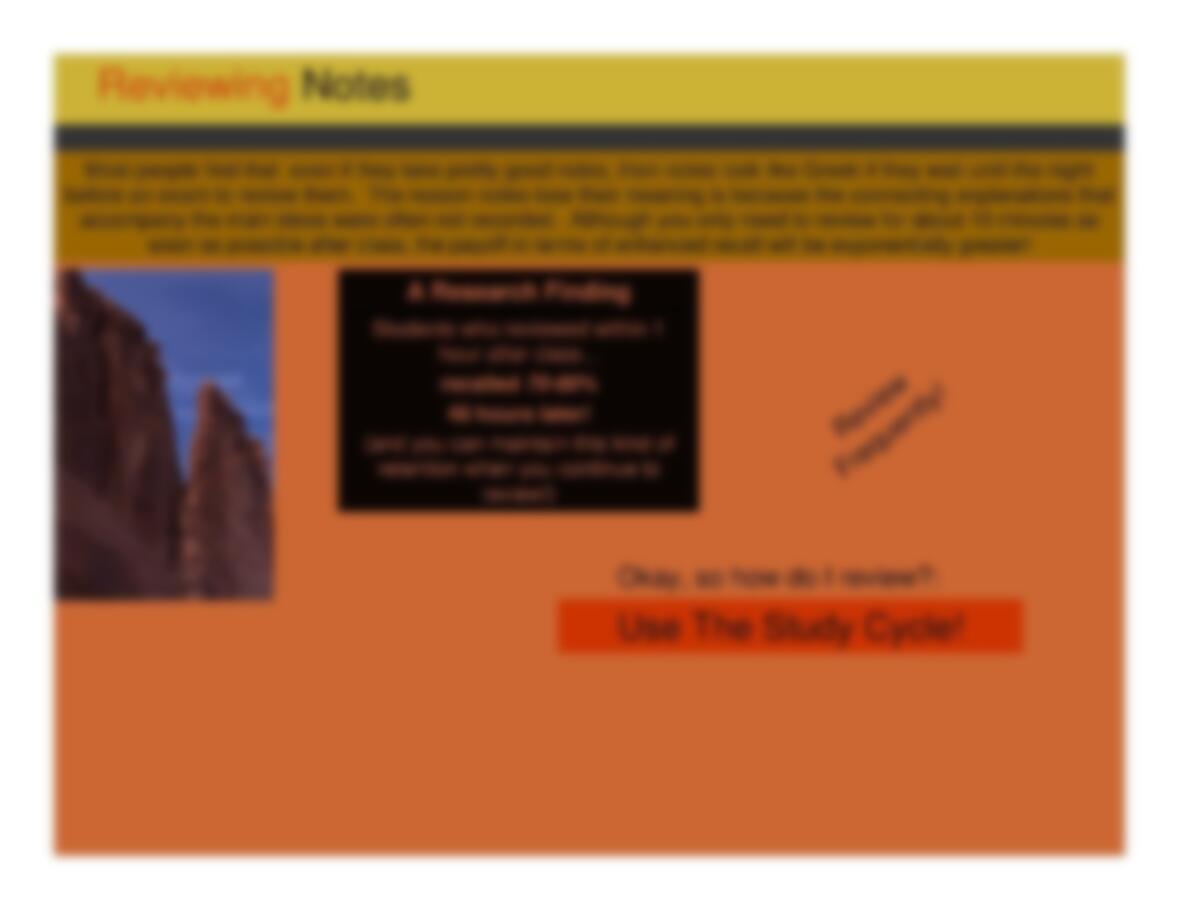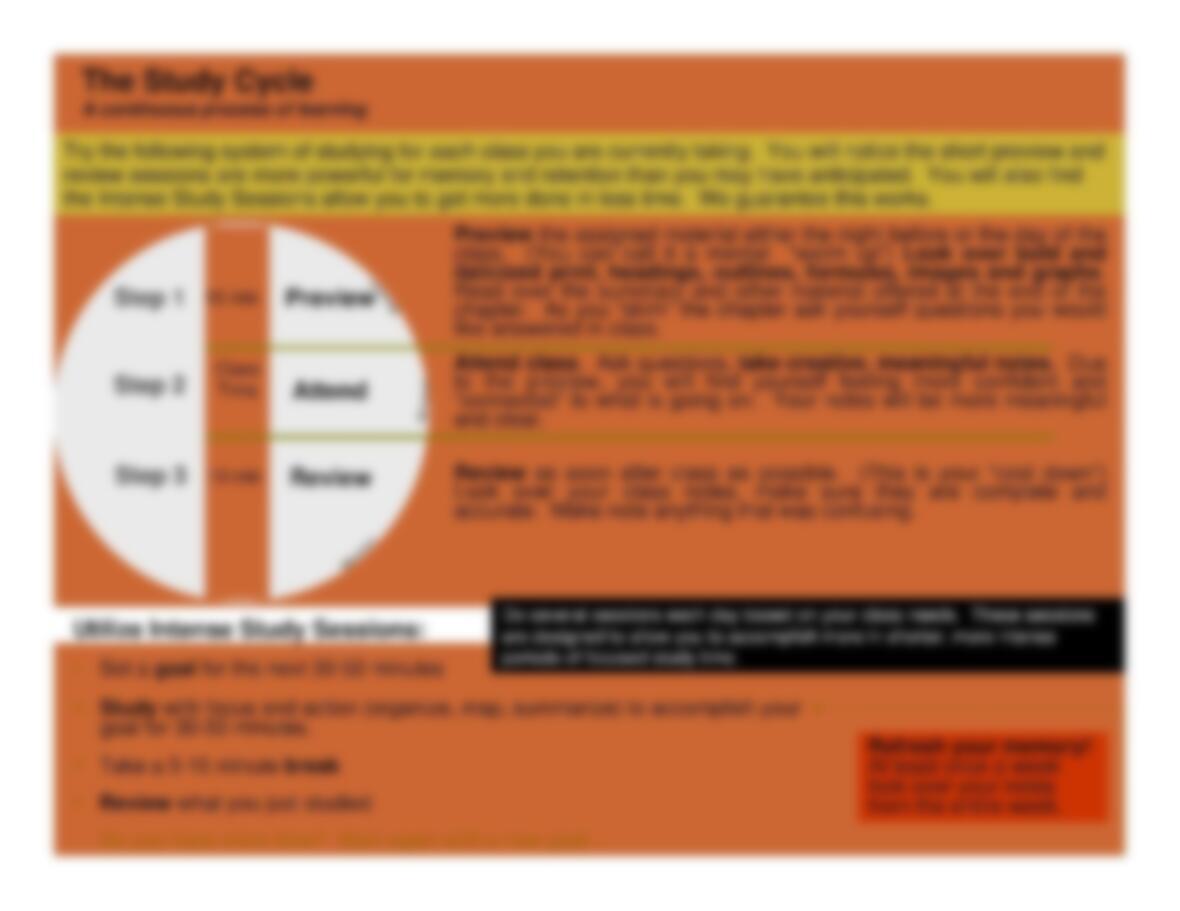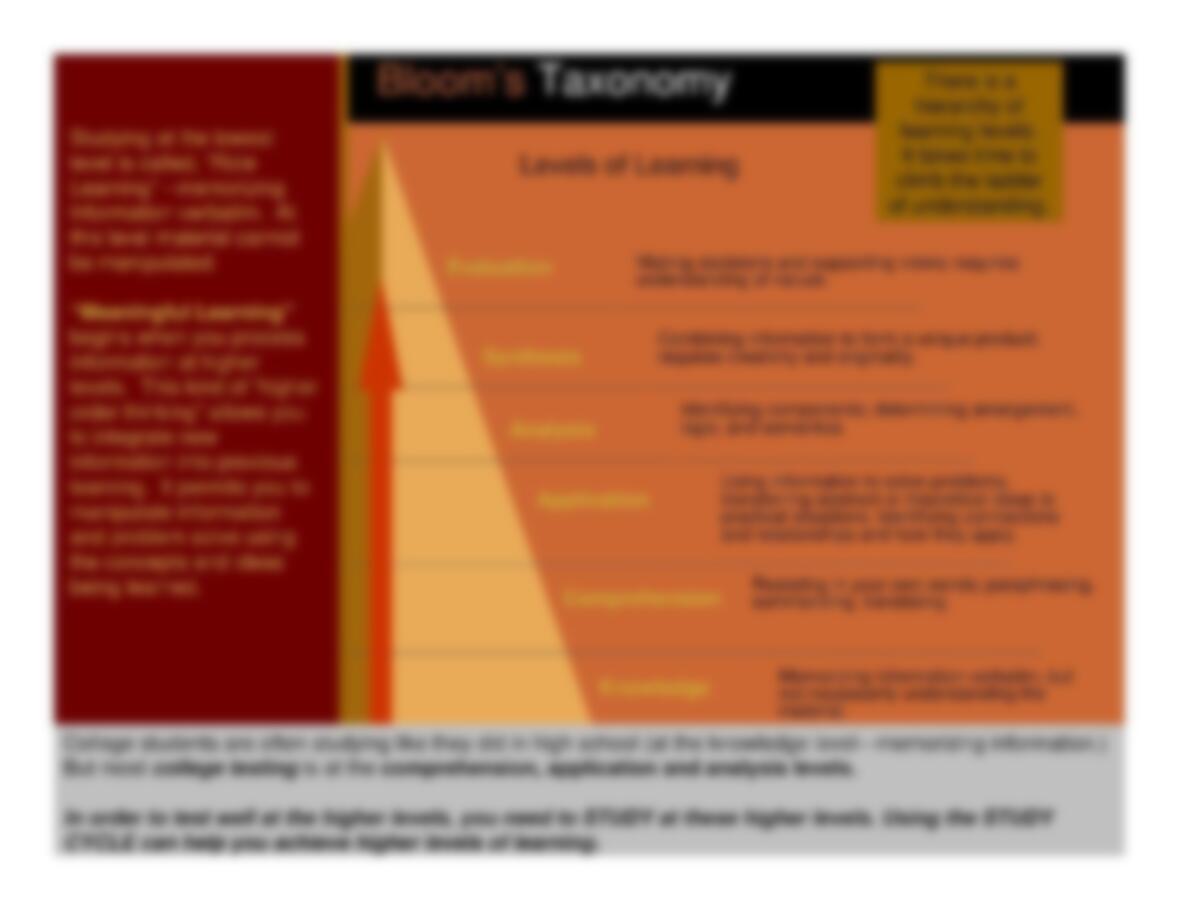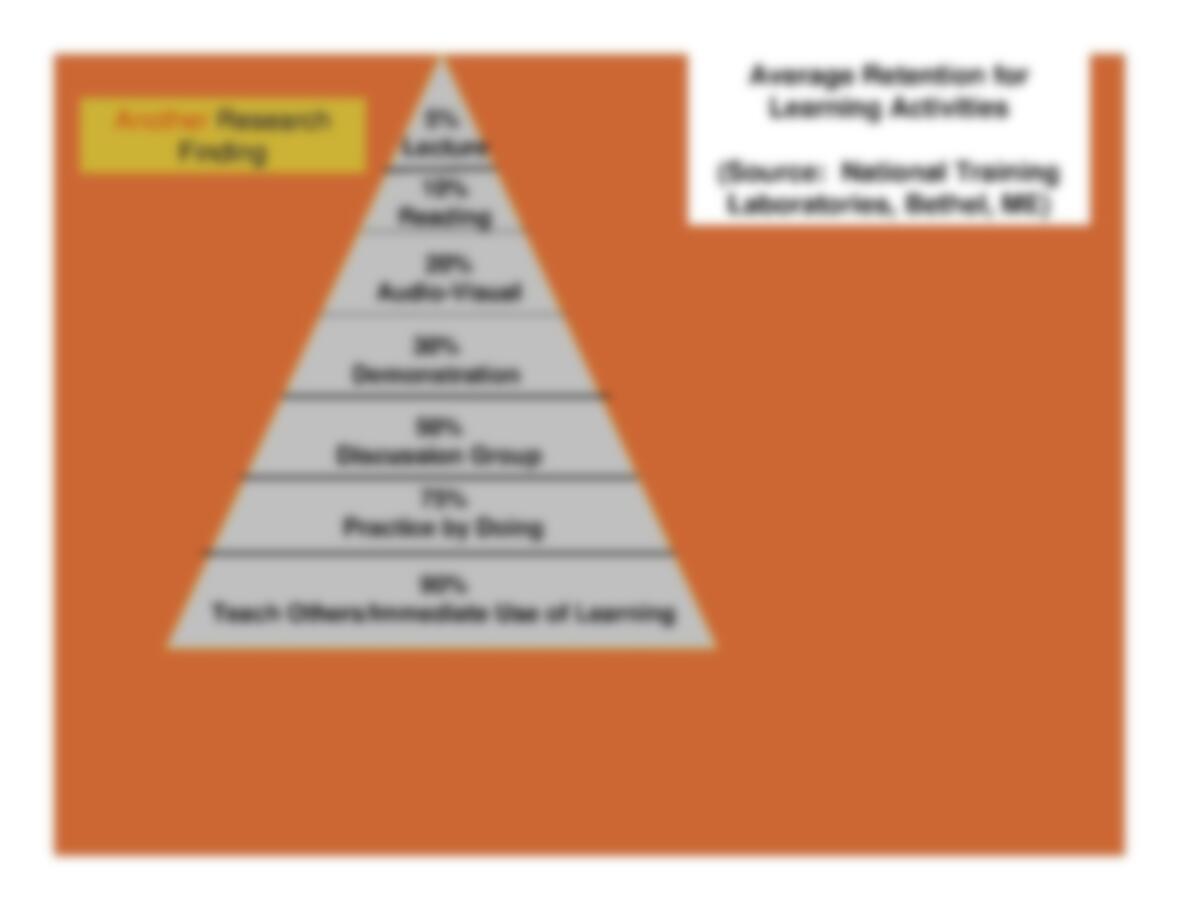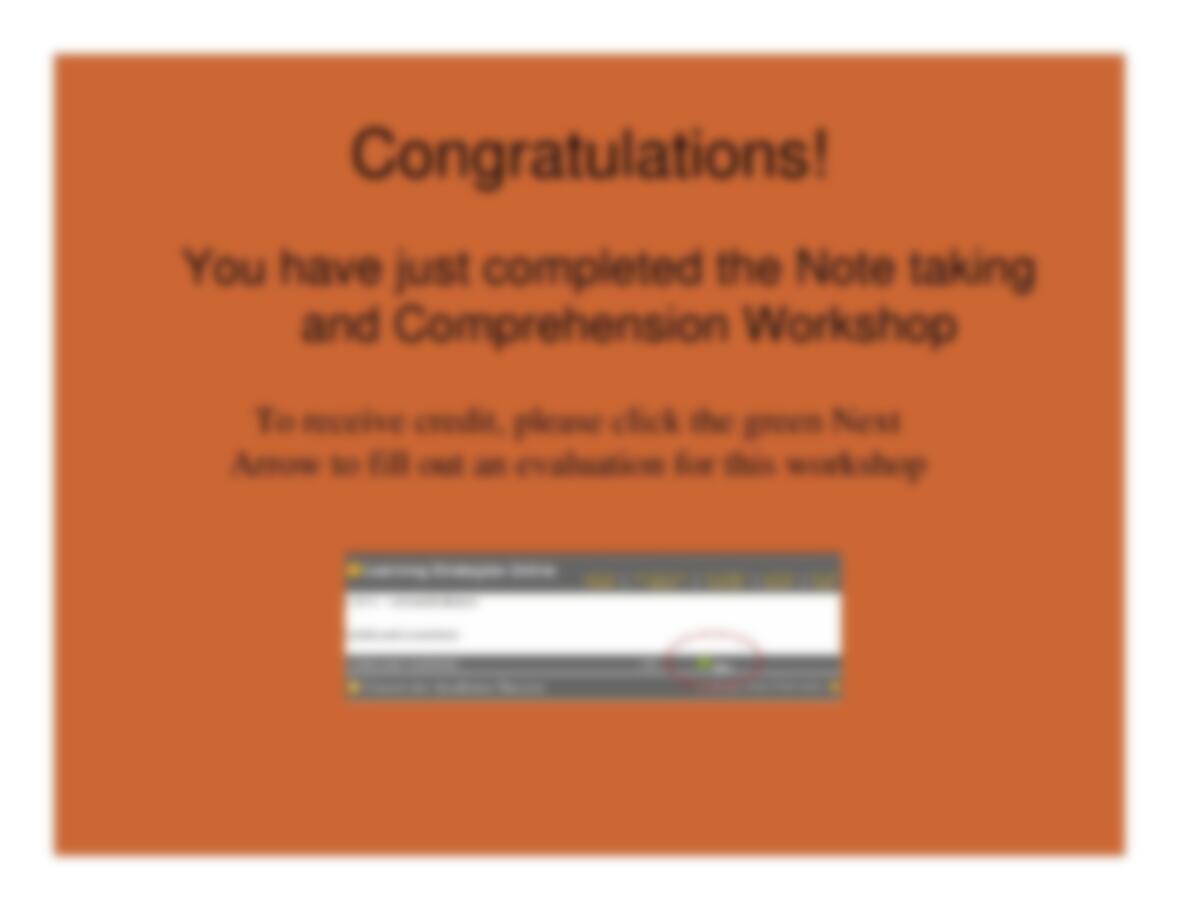1. When you are in class do you sit upright and lean forward?
2. Do you go with the flow of the lecture or do you ask questions (if you ask questions, try to
guess in advance what the instructor is going to say next).
3. Do you regard each lecture as a separate event or do you ask yourself how the material
relates to previous information?
4. When you take notes, do you reproduce what the instructor says as closely as possible or try
to interpret and summarize the ideas behind the instructor’s words?
5. Do you make contact with the instructor and take advantage of office hours?
Listening (and taking notes) in college lectures is harder than
it looks. You have to be able to do something to actively
process it in some way. David Barken, listening expert said,
“Easy listening exists only on the radio.” And that’s
particularly true for college courses.
What kind of listener are you?





















